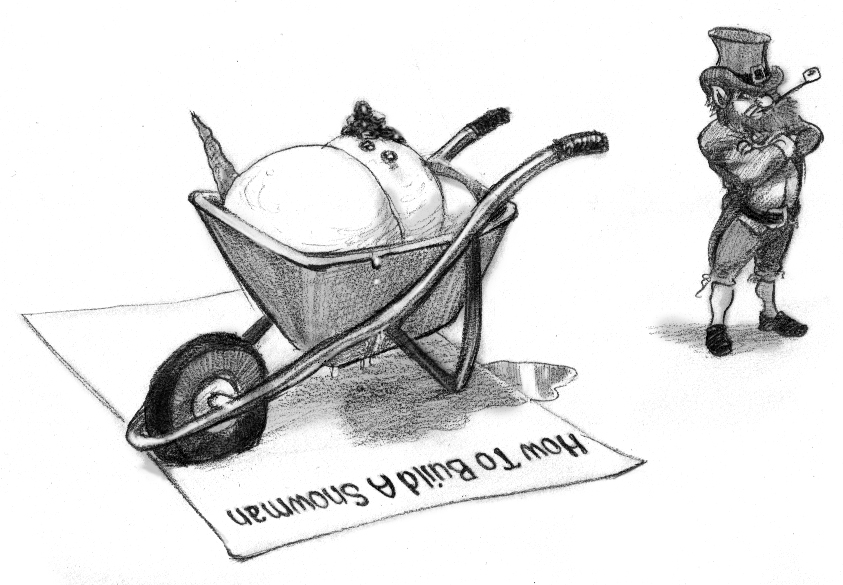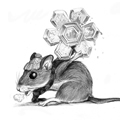
What you never expected to hear about a writing prompt

Suppose that you have just bounded in from recess, hurled yourself into your chair only to look up and see a new assignment:
Describe how to build a snowman.
A boring writing prompt.
In a matter of seconds, your heart slows, your breathing becomes deep and rhythmic. You reach for a pencil. The lead is broken and needs sharpening, but suddenly the distance between you and the sharpener looks like a mile. You yawn, give your now drooped right eyelid a sleepy rub and begin writing absentmindedly.
Writing prompts. They can make you feel like you have been infected with a giant dose of sleeping sickness from a circling tsetse fly.
Now, imagine this:
A little leprechaun comes along and offers you the following writing assignment instead…
Hey, you! Forget snowmen. Write about clinging to the slippery side of a raft, which is stuck on a rock, with whitewater rapids churning all around you. I will even throw in a venomous berg adder, loose in the bottom of the boat!
Would you take this other assignment?
At the end of 30 or so minutes, which piece of writing would likely turn out better?
The leprechaun won’t tell you this, but there is a very good case for the snowman.
When we write about something we have experienced, we have tremendous access to details. Details are already in our minds, hanging like big pieces of fruit. If we look through our memories long enough, we might collect so many details that we cannot even fit them all into a single piece of writing! The details are that plentiful!
However, details can quickly become scarce—dangerously scarce—when we are writing about an unfamiliar experience, a circumstance which has been invented. If you have never once careened down a river in a raft, and you turn to your memory for details, how many can you expect to find?
And how can you write well with no details??
New idea: Use thumb and forefinger to flick the tsetse fly off your arm. Bid the leprechaun a firm good day.
Then take a wheelbarrow through your mind, passing all of the snowmen you have ever known. Fill the wheelbarrow with the most excellent details. You will need details about the sky and ground that will surround this snowman, the quiet sounds of winter that might be heard, the sopping wet gloves you might be wearing, the stinging cold of the snow. Drive those details right into your story! Consciously create a new story from old experiences. Enjoy it.
You will travel on from these familiar snowy days to more exotic places. And you will know how to handle them well because of the practice you have had with what is familiar.







